Acc aha 10 year risk calculator
In this article learn about the symptoms of. The use of the risk calculator to identify those in the primary prevention population who should be treated at the new lower 13080 mmHg threshold is an important advancement consistent with European risk-based treatment guidelines for hypertension and with the use of the pooled cohort risk calculator in the 2014 ACCAHA guideline for blood.
Ascvd Risk Calculator
The risk score can help you make lifestyle changes or take medicines to prevent heart disease.

. On the basis of your calculated risk for heart disease or stroke less than 75 the ACCAHA guidelines suggest you have no indication to be on a. Lower rates of cardiac death were seen after revascularization than with medical therapy alone in a meta-analysis of 25 studies enrolling. The ASCVD Risk Assessment Calculator gives both the 10-year and lifetime risk of developing atherosclerotic heart disease which includes heart attack and stroke.
Individuals not receiving cholesterol-lowering drug therapy should have their estimated 10-year ASCVD risk calculated initially and then every 4 to 6 years in individuals aged 40 to 75 years without clinical Atherosclerotic Cardiovascular Disease or. Common causes include a traumatic brain injury stroke tumor or infection. For the same other inputs this calculator estimates higher cardiovascular risk for African American patients.
The ASCVD Atherosclerotic Cardiovascular Disease 2013 Risk Calculator from AHAACC determines 10-year risk of heart disease or stroke. Other CVDs include stroke heart failure hypertensive heart disease rheumatic heart disease cardiomyopathy abnormal heart rhythms congenital heart. This calculator helps health care providers to estimate 10-year risk for atherosclerotic cardiovascular disease ASCVD defined as coronary death or nonfatal myocardial infarction or fatal or nonfatal stroke based on the Pooled Cohort Equations.
Calculate your 10-year risk of heart disease or stroke using the ASCVD algorithm published in 2013 ACCAHA Guideline on the Assessment of Cardiovascular Risk. Cardiovascular disease CVD is a class of diseases that involve the heart or blood vessels. Low-risk.
See here for more on our approach to addressing race and bias on MDCalc. 1 Patients are considered to be at elevated risk if the Pooled Cohort Equations predicted risk. Use of the risk calculator and ACCAHA guidelines remains controversial and is evolving as more data become available.
EF. This Risk Estimator enables health care providers and patients to estimate 10-year and lifetime. The heart failure life expectancy calculator is a simple yet effective tool for predicting the 1-year and 3-year survival odds of someone with congestive heart failure.
Calc Function Calcs that help predict probability of a disease Diagnosis. You can calculate your 10-year risk of heart disease or stroke using the Heart Risk calculator from AHA and American College of Cardiology if you are age 40. Counseling on a heart healthy lifestyle forms the foundation of ASCVD prevention.
These cardiovascular risk assessments use personal health information to calculate a 10-year and lifelong risk of heart disease. Medication is recommended for primary prevention in adults with an estimated 10-year risk of atherosclerotic CVD of 10 of more and an average BP of 130 mm Hg or greater systolic or 80 mm Hg or. Estimate 10-year risk for atherosclerotic cardiovascular disease.
10-year risk of heart disease or stroke On the basis of your calculated risk for heart disease or stroke under 10 the USPSTF guidelines suggest you would not likely benefit from starting aspirin. The updated 10-year ASCVD risk at follow-up visits and projected 10 -year ASCVD risk values are derived from. Several case series have indicated that performance of a surgical procedure in patients with adult congenital heart disease ACHD carries a greater risk than in the normal population.
If you have generally it is recommended that you discuss with your doctor about starting aspirin and a statin. The risk is categorized as follows. For more information about the inputs and calculations used in this app see Terms and Concepts in the Resources tab below.
The ACC collaborated with the American Heart Association AHA to develop this reliable heart risk calculator. 10-year risk for ASCVD is categorized as. CVD includes coronary artery diseases CAD such as angina and myocardial infarction commonly known as a heart attack.
Initial 10-year ASCVD risk either at a first visit or a previous visit being used for comparison is calculated via the Pooled Cohort Equation published as part of the 2013 ACCAHA Guideline on the Assessment of Cardiovascular Risk. Top 10 Take-Home Messages2020 AHAACC Guideline for the Diagnosis and Treatment of Patients With Hypertrophic Cardiomyopathy e559. In the article below we will focus on congestive heart failureCHF prognosis the estimates on how long can you live with congestive heart failure and the average CHF life expectancy for a given.
Some say that the current risk calculator can overestimate risk. This peer-reviewed online calculator uses the Pooled Cohort Equations to estimate the 10-year primary risk of ASCVD atherosclerotic cardiovascular disease among patients without pre-existing cardiovascular disease who are between 40 and 79 years of age. Children who are 16 to 18 years of age accounted for 2 of the.
2021 ACCAHASCAI Guideline for Coronary Artery Revascularization. 108 113 For more information. This Risk Estimator is intended as a companion tool to the 2013 ACCAHA Guideline on the Assessment of Cardiovascular Risk and the 2013 ACCAHA Guideline on the Treatment of Blood Cholesterol to Reduce Atherosclerotic Cardiovascular Risk in Adults.
The 10-year rates of cardiac death were lower after CABG or PCI than after medical therapy alone. The GRACE 20 risk calculator. This calculator includes inputs based on race which may or may not provide better estimates so we have decided to make race optional.
This calculator assumes that you have not had a prior heart attack or stroke. 108 113 The risk relates to the nature of the underlying ACHD the surgical procedure and the urgency of intervention. Cerebral edema refers to swelling in the brain caused by trapped fluid.
Less than 5 low risk 5 to less than 75 borderline risk 75 to less than 20 intermediate risk Greater than or equal to 20 high risk.
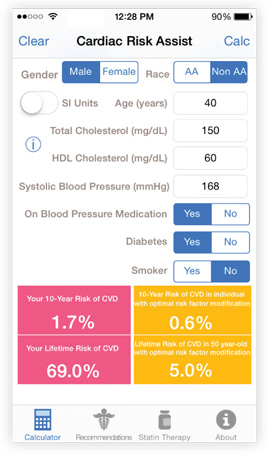
Cardiac Risk Assist

Pin On Nutrition Education Posters

Ascvd Risk Estimator

Machine Learning Outperforms Acc Aha Cvd Risk Calculator In Mesa Journal Of The American Heart Association

Ascvd Risk Estimator
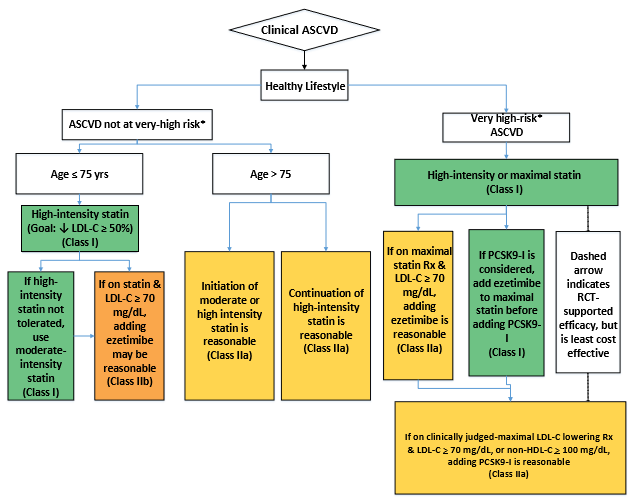
Ascvd Risk Estimator
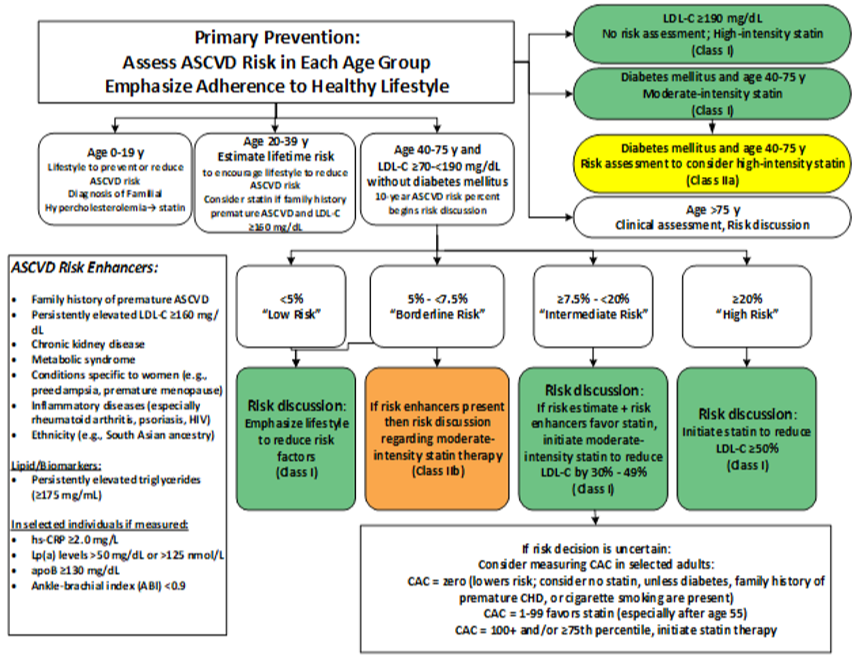
Ascvd Risk Estimator

Machine Learning Outperforms Acc Aha Cvd Risk Calculator In Mesa Journal Of The American Heart Association
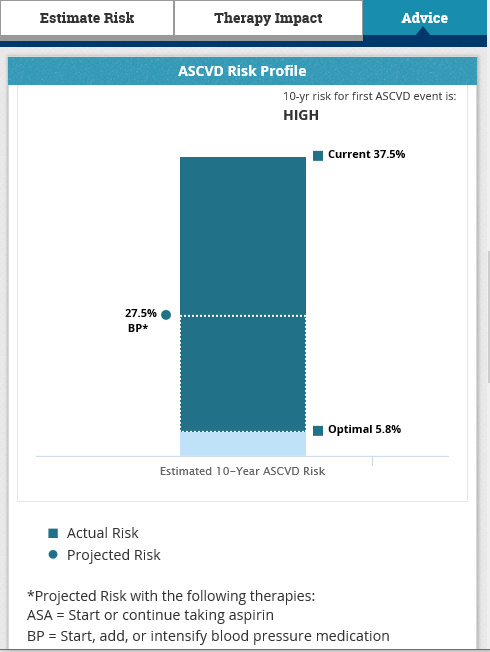
Ascvd Risk Estimator Plus American College Of Cardiology
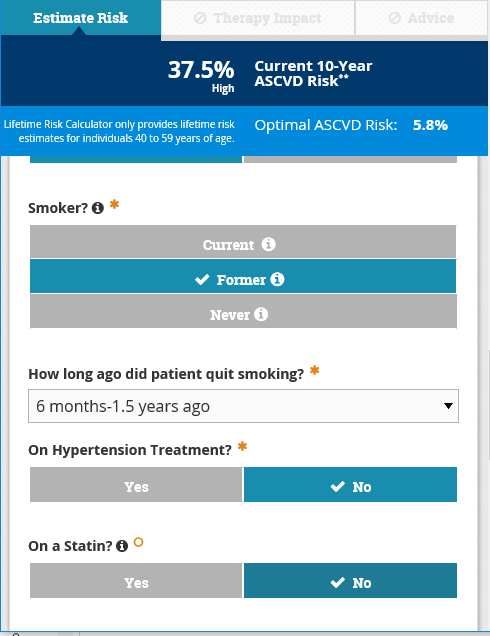
Ascvd Risk Estimator Plus American College Of Cardiology

Sunscreen Ingredients Clinical Trials Active Ingredient Geometric Mean

Pin On Health
App Review Acc S Ascvd Risk Estimator Plus App American College Of Cardiology
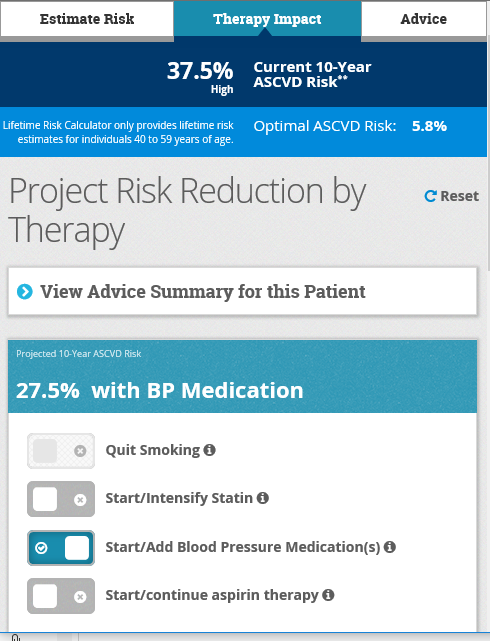
Ascvd Risk Estimator Plus American College Of Cardiology

Acc Indicates American College Of Cardiology Aha American Heart Association And Ascvd Atherosclerotic Cardiovascular Disease Fnp Cardiovascular Disease
Ascvd Risk Calculator

Ascvd Risk Estimator
Komentar
Posting Komentar